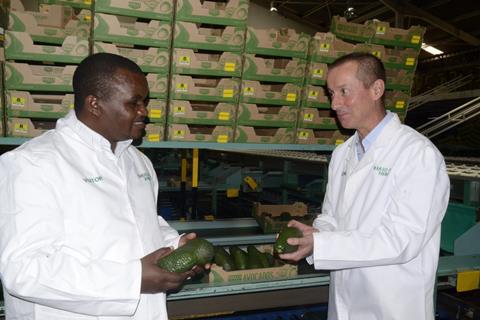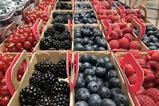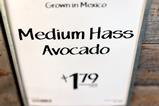The Kenyan exporter says its avocado business saw a major dowturn in profits last year

Kenyan avocado exporter Kakuzi has reported a pre-tax loss of Ksh167mn (€1.2mn) for 2024.
The firm blamed the poor result on various challenges including disruption to its shipping routes, a strengthening of the Kenyan shilling against the US dollar, a fall in export volumes, and adverse weather conditions.
In contrast, the firm posted a Ksh455.6mn (€3.26mn) net profit in 2023 and an even better result of Kshs845.8mn (€6.06mn) in 2022.
According to the company, the strengthening of the Kenyan shilling resulted in additional foreign exchange losses of Ksh197mn (€1.41mn) against its US dollar holdings, compared with foreign exchange gains of Ksh118mn (€0.85mn) in 2023.
Kakuzi managing director Chris Flowers said the only alternative shipping route from Kilindini, around the Cape of Good Hope in South Africa, added a further two weeks to the shipping times, which significantly continued to impact the quality of fruits arriving in Europe.
He added that the company’s avocado profits had decreased to Ksh361mn (€2.59mn), down from Ksh1.37bn (€9.81bn) posted in the previous year, and that lower, weather-affected avocado yields meant exports closed at 2.22mn cartons, down from 3.07mn cartons in 2023.
“The results reflect a number of challenges, including the excessive rainfall experienced in early 2024, which caused waterlogging, hampering fruit production. Consequently, fruit volumes for both Hass and Pinkerton avocados decreased by 23 per cent and 19 per cent, respectively,” Flowers said.
He added: “The Kenya shilling also strengthened by 15 per cent against the euro, which averaged Ksh140 during the avocado export season, resulting in lower shilling revenues compared to the previous year when the euro averaged Ksh162.”
Kakuzi’s macadamia division fared better, posting a pre-tax profit of Ksh69mn (€490,000) in 2024, compared with a Ksh354mn (€2.54mn) loss in the previous year. Likewise, its forestry and livestock division posted a higher profit.
Flowers said the group had “activated mitigation strategies” to reduce the impact of logistical challenges by adapting to the longer delivery lead times. “Whilst we hope that the geopolitical tension in the Middle East will ease, we must plan to continue with the rerouted logistics in 2025, and Kakuzi is doing all it can to focus on delivering quality products to the company’s customers,” he said.
Kakuzi chairman Nicholas Ng’ang’a noted: “To reduce our dependency on European markets, it is essential for both public and private stakeholders in Kenya’s avocado sector to explore high-value new markets. While China and India hold potential, their current demand is still relatively low compared to Europe’s. As the largest consumer of avocados globally, the North American region must be considered a future target for Kenya’s exports.”
He continued: “In 2024, the US consumed 1.3mn metric tonnes of avocados, compared to 0.9mn metric tonnes in Europe, with over 80 per cent of its avocados sourced from Mexico. The North American market presents a significant opportunity for Kenya.”
He stressed that Kakuzi would continue to use agricultural technology solutions to maximise yields.








